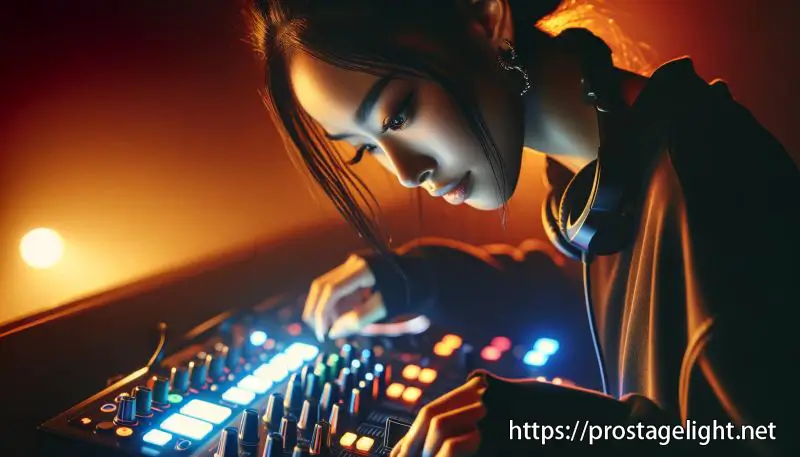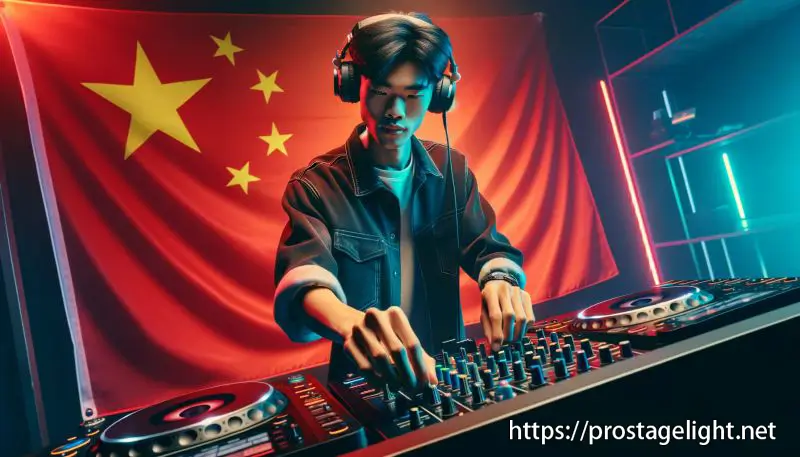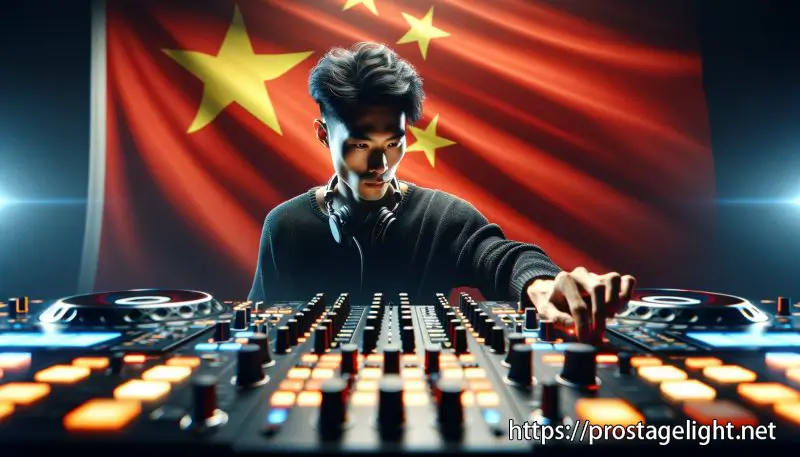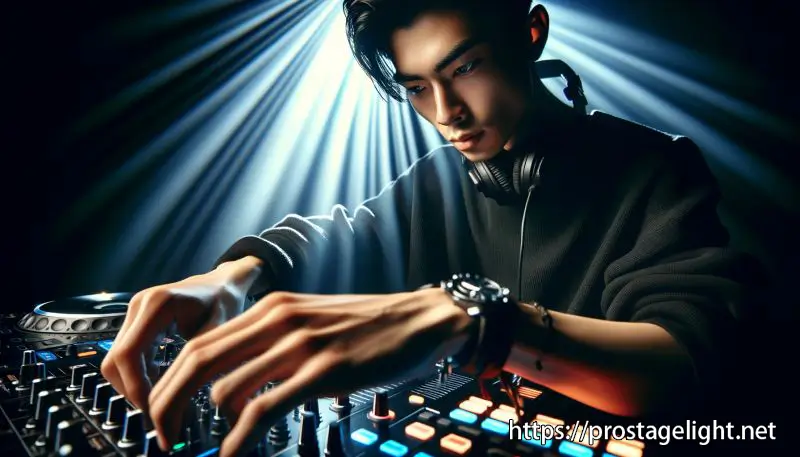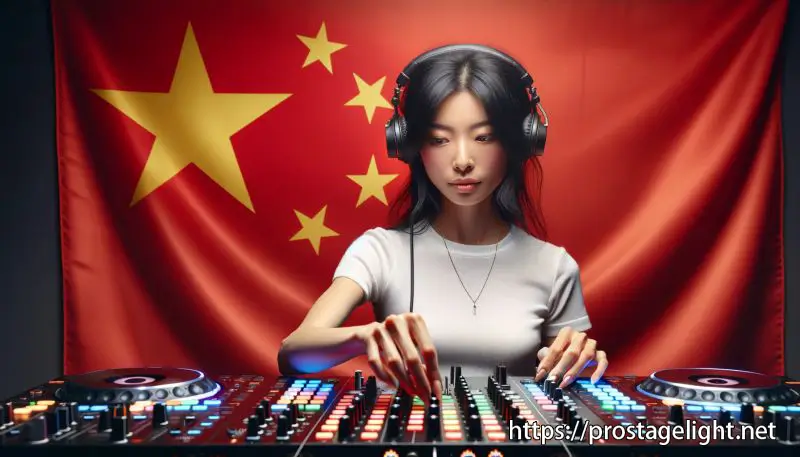Introduction
Are you passionate about music and considering a career as a DJ? This article delves into the multifaceted world of DJing in China. From the excitement of mixing beats to the challenges of dealing with diverse audiences, we explore the realities of the profession. Whether you dream of spinning tracks at a packed nightclub or curating playlists for private parties, this article sheds light on the DJing landscape.
First, you need to understand what a DJ is. There's an apt analogy online, which is that after the invention of the phonograph, a noble hosted a grand ball in their garden and wanted the music to play continuously. So, they assigned a servant to stay by the phonograph to flip or change the vinyl records as needed, akin to the earliest form of a DJ. Essentially, a DJ is the person responsible for the music at an event, serving both the event organizer ("father") and the musical atmosphere of the event. However, it's important to differentiate that if music were compared to a dish, music producers are the chefs, while DJs are more like the servers. The reason why top DJs are famous is mostly not because of their serving skills but rather their strong music production abilities. In other words, they play both the chef and the server roles. Their fame comes from the quality of their "dish," not merely their serving ability. Of course, there are exceptions, such as DJ Soda, who has a good appearance and popularity, which can also be seen as a talent.
Is it challenging to be a DJ? It's easier than one might imagine. To illustrate, suppose you buy a guitar online, but this guitar is different as it comes with software that has a mistake correction feature. Whenever you press the wrong chord, strum incorrectly, or are out of tune, the software will automatically correct the mistake. As technology advances, this software continues to update and evolve, making practice and performance increasingly convenient and straightforward. The same goes for DJing. The software used by DJs also progresses over time, making the threshold of becoming a DJ increasingly lower. Compared to traditional musical instruments, DJing doesn't require extensive music theory knowledge; understanding the basics of beats and keys is enough. Is scratching a problematic skill for DJs? As mentioned before, a DJ's primary responsibility is to manage the atmosphere of the event, and grinding is about using specific effects to play music, so it's an optional skill for a DJ. However, employing basic scratching techniques can enhance the overall atmosphere of a performance, so a qualified DJ need not be overly concerned with scratching skills.
What are the career paths for a DJ? In all scenarios, a DJ's career direction boils down to two goals: 1. popularity and 2. networking. These two are interdependent; popularity naturally leads to networking and vice versa. Specifically, if you want to become a resident DJ at nightclubs or bars, you should be prepared for high turnover in this position. Beyond mixing skills, there will always be someone new ready to take your place, perhaps with better looks, body, or attire.
Moreover, DJ job listings are relatively hidden; you seldom see DJ recruitment information on job sites, as positions are usually filled through personal referrals or directly from DJ training institutions. Thus, enthusiasts who self-learn DJing might find it challenging to keep up due to various reasons, whether it be appearance, lifestyle, or specific rules and conditions. If you opt for underground clubs, the music tends to be niche, such as techno, house, or DnB. The bad news is that most people might not appreciate the repetitive beats, but the good news is that those who come usually immerse themselves in the music. Society's perception of these clubs is quite polarized – those who love it love it, and those who don't feel completely indifferent. Underground music is also known for its inclusivity and diversity, often becoming the breeding ground for non-mainstream cultures, further deepening controversies. If you choose to tour with a team, you need to consider the team's operational model, which may not have the financial backing of commercial nightclubs or underground clubs. Thus, everything focuses on the team's benefit, and individual salaries tend to be lower. Moreover, touring inevitably involves traveling by high-speed train or airplane, which can be exhausting, and missing a connection could mean missing a performance.
Why I don't recommend DJing as a full-time profession? The first reason is that entertainment venues where DJs typically perform are mixed with all sorts of people, regardless of age, identity, occupation, education, values, or how they handle their alcohol. In theory, anything can happen while working. I've even had an incident where an intoxicated customer threw a bottle at me, which fortunately hit me instead of the screen or the DJ turntable behind me. If it had hit the equipment, getting thrown out by security would have been the least of the problems. And it's not just the customers—unreasonable demands from superiors, like unwarranted deductions from paychecks, being forced to drink with clients as part of the job, or other arbitrary rules. After all, those in management have often paid a higher price and made more extraordinary sacrifices to get there, and now, as an employee, you are at the mercy of their power.
The second reason is the salary is less attractive than one might hope. Many electronic music enthusiasts have spent much time and money on DJ training courses, only to find that more than the performance pay is needed to cover daily expenses. The market may favor female DJs, considered more attractive, and male DJs without packaging or fame might very well experience the old saying of "starving every other day." Of course, that's an exaggeration, but the reality is after paying for rent, utilities, internet, and basic living costs, there's little money left.
The third reason is that DJing is not a secure career with an uncertain future. Many invest heavily in learning to DJ, only to find that the industry is far from what they expected. They face a dilemma: continue to pursue a dream that seems increasingly out of reach, or give up after so much investment? The all-too-common situation might be spending hours preparing a set to share great music with the audience, only to have a big spender dismiss it with a comment that it's not exciting enough, forcing you to play the same old tracks you're sick of.
Another aspect is that the role of DJs in commercial bars might soon be replaced by artificial intelligence. With membership in software like Rekordbox, the functionality is essentially there. So, it's bold to predict that the future role of DJs might lean more towards that of MCs/dancers, not needing to mix tracks but rather to lead the vibe of the dance floor.
However, there are scenarios where I strongly recommend DJs get involved, such as private parties. Whether it's certain moments at a wedding, a blast with friends, a bonfire during a camping trip, or a summer pool party, these are times when music can boost the atmosphere, facilitating social interactions on the dance floor. Here, a DJ's role is crucial. They can communicate with the party host in advance and customize the playlist to suit the tastes of the friends and the rhythm of the party. This flexibility and ability to control the vibe is a DJ's advantage and a chance to showcase their skills. For private party DJs, the perks include a controlled and forgiving audience. As a DJ, you won't need to worry about anything besides the music. This is an excellent opportunity for novices and experienced DJs who enjoy showing off their skills with effectors.
In the future, private parties will be a trend, as indicated by the prominent placement of tents in sports stores and the popularity of party accommodations on social platforms, showing that personalized, low-cost party activities are increasingly becoming a sought-after form of entertainment, offering experiences often far more exciting than what commercial bars can provide.
So the question arises: how can one become a DJ? Is the exorbitant training fee of 15,000 worth it? Many are eager to become DJs but are deterred by the cost. I'll explain why DJ training is so expensive and whether it's worth the high price. For example, if you want to learn cooking, a cooking school might suggest you need imported knives, a solid wood cutting board, top-of-the-line kitchen appliances, and lessons from a highly decorated chef, which naturally drives up the cost to an excessive amount. But they won't tell you that with a simple hundred-dollar stove in your tiny rental, you can still make meals that rival those from comparable take-out or meal kits.
DJ training institutions use similar tactics, suggesting you need a 40,000 to 50,000 setup that's standard in clubs and bars, taught by a well-titled DJ teacher. However, they don't tell you that with a portable setup and self-study, you can achieve the same results. They also tend to package DJs in a cookie-cutter fashion, including in your profile PPTs, in your photoshoots, using social media influencer tactics, not to mention studio operating costs, decor costs, and various maintenance fees—all included in your tuition. These institutions capitalize on exclusive resources to create high barriers to entry.
The stereotype that DJing is a luxury pastime requiring expensive equipment and high fees has been cultivated by these institutions. But the truth is, you can become a DJ with a low-cost setup. You might not have the grandeur of a club DJ, but you will have the skills to entertain and move a crowd. You can purchase a second-hand Pioneer controller, costing about 3,000, and watch free online tutorials. There's no need for a fancy studio. In your bedroom, with patience, passion, and practice, you can master the art of DJing.
I know many successful DJs who started with minimal setups. As their skills improved and they became known in the community, they received invitations to larger venues. That's when investing in higher-end equipment made sense. Remember, the essence of DJing isn't about how expensive your equipment is but your ability to read the crowd and play music that makes people dance and feel good.
So, is it worth spending 15,000 on DJ training? It depends on your financial situation and dedication to DJing as a hobby or career. For those determined to go professional and with the financial means, professional training offers benefits, such as networking opportunities, exposure to club-standard equipment, and a faster track to high-profile gigs. But if you're on a budget or unsure about committing to DJing as a career, there are more economical ways to learn and still become proficient.
It's essential to weigh the costs and benefits, considering your own goals and circumstances. DJing should be about the love of music and the joy of sharing it with others, not just about the prestige or the price tag of the equipment and training.
conclusion
This article provides insights into the DJing profession in China. It discusses the challenges DJs face in the nightlife industry, the opportunities for private party gigs, and future developments in DJing. While highlighting the obstacles and uncertainties, it also emphasizes cost-effective ways for aspiring DJs to start their journey. Whether you're curious about the DJ world or aiming to become a DJ, this article offers a comprehensive overview.
Frequently Asked Questions
1. What are the challenges of being a DJ in China?
DJs in China face a diverse range of challenges, including dealing with unruly patrons, unreasonable demands from employers, and uncertain income stability. The nightlife industry can be unpredictable, and DJs must adapt to various situations while maintaining professionalism.
2. Can I become a DJ without spending a fortune on training?
Absolutely! You don't need to invest heavily in DJ training. With a basic setup and online tutorials, you can acquire the necessary skills. Many successful DJs started with minimal equipment and gradually upgraded as they gained experience and recognition.
3. What are the opportunities for DJs in private parties?
Private parties, such as weddings, gatherings, and outdoor events, offer great opportunities for DJs to showcase their skills. DJs can tailor their music to suit the party's atmosphere, making them crucial in creating a memorable experience for guests. Private parties represent a growing trend in entertainment and present a promising avenue for DJs to thrive.


